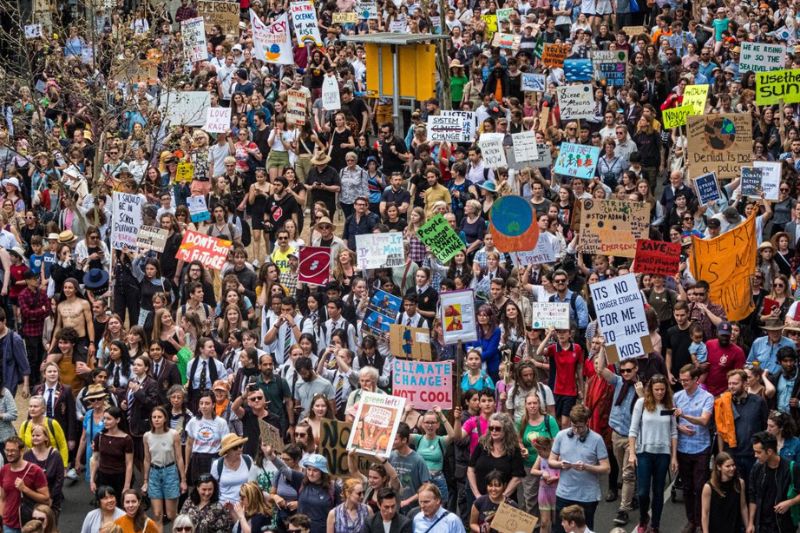Despair is usually seen as the deadliest of the deadly sins. It closes down the flow of energy needed to sustain the hope that our life and our world can be better. Dedicated days and weeks like World Peace Day, World Children’s Day and World Environment Day are rituals designed to stir us out of the apathy that is the breeding ground of despair. They encourage us to survey aspects of the world we live in, to note its pathologies, and to find new energy to build its health.

If that is so, World Environment Day has a lot of work to do. The daily headlines tell stories of the present effects of climate change, of the escalating future risk, of the power of money to conceal and increase the risk, and of the inadequacy of the current response to preserve a liveable world for the world’s children.
A few recent news items give some detail. A survey of the world’s leading climate scientists revealed general pessimism that the limitation to 1.5 per cent increase in global warming could be reached. Many forecast 3.00. The business pages reported that large investors are turning from renewables into coal and oil. The deforestation of Australian land for the production of beef, one of the large sources of emissions, accelerates. Nor does World Environment Day offer unrelieved good cheer. It is sponsored by Saudi Arabia and focuses on land restoration. The accompanying United Nations letter of commendation, however, mentioned the degradation of land associated with fossil fuels.
When you add to these details the generalities of declining living standards, wars, and paralysed and polarised political systems, you have the makings of despair. And yet there are grounds for hope, if not for optimism. What has already been done to address global warming, the commitment of young people to demanding more radical change, and the increasingly destructive effects of climate change, may all increase pressure for more radical change.
World Environment Day reminds us that this change must be grounded in a change of heart. This begins by paying attention to the world around us, goes on to discern what needs to be done, and then proceeds to act accordingly.
At the heart of this change is the recognition that the environment is not something which we have, but is something of which we are part. The world around us is a ‘we’ and not an ‘it’. If the world around us is harmed, we suffer. We are bound into vast sets of interlocking relationships to other people, to institutions, and to the natural and the made world. The world is not our possession, but a gift. Our proper relationship to it and to all within it is one of respect, not of exploitation. It invites us to look at the network of relationships that bind all together, and not look at things and individuals in isolation.
This view of the world as relational implies that it is more than we can understand and control. The interlocking network of relationships that constitutes the universe will prompt us to continuously ask deeper and more profound questions about any answer we might find. We recognise that human beings have limits imposed by being bound into a world that we cannot control. Our technologies are good instruments for living well but are not a saviour who will rescue us from the effects of our abuse of our world.
'At the heart of this change is the recognition that the environment is not something which we have, but is something of which we are part. If the world around us is harmed, we suffer.'
In polemic over the environment, climate change and technological development, the dividing line between the adversaries often appears to be the acceptance or rejection of limits. Some believe that technology will solve all the problems to which its development have contributed and will contribute. Some give priority to individual choice and profit over any damage that their exploitation of their environment might cause. Some appear to glory in the human power to pollute and destroy regardless of its effect on human life. The passion with which these views are defended appears to reflect personal outrage at the notion of limits.
The opposing attitude to the environment is built on a humility that its critics see as pusillanimity. It sees a healthy environment as one in which the networks of relationships that constitute the environment in its human and other aspects are in balance. They are safeguarded by respect for the common good that looks both to the good of each human being and of the whole society. To maintain that balance necessarily demands respect for the relationships between people within the family, within all the small and large institutions of social life that define humanity, and beyond that within the relationships to the natural and made world on which the quality of human life depends.
That kind of conversion may seem massive, too radical to expect of more than a few people. But can anything less overcome the weight of greed and of sectional interest that propels the destruction of our environment and so of ourselves? It is worth fighting for.
Andrew Hamilton is consulting editor of Eureka Street, and writer at Jesuit Social Services.
Main image: (Getty Images)